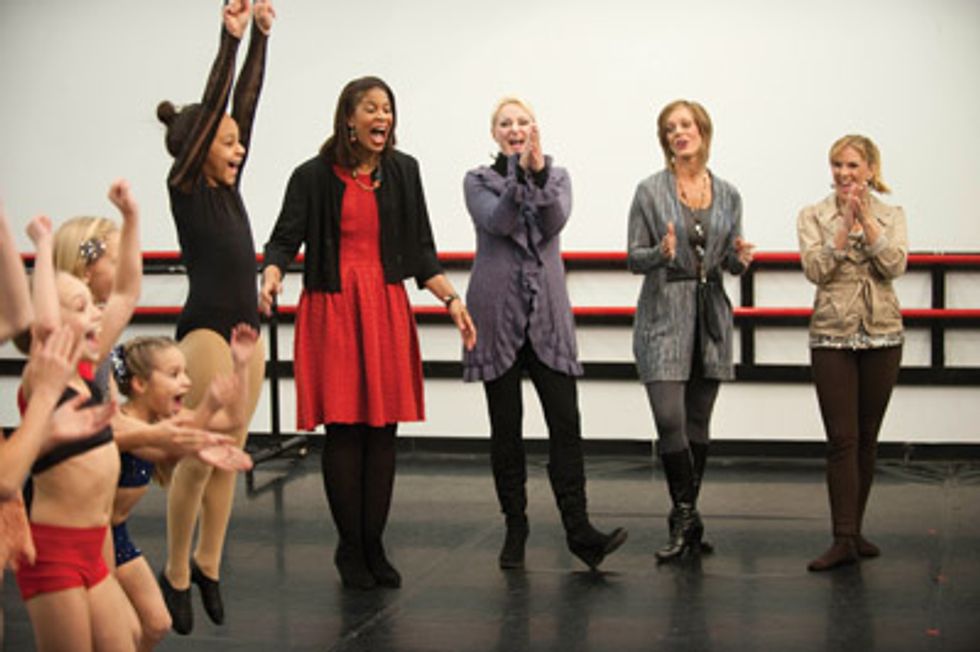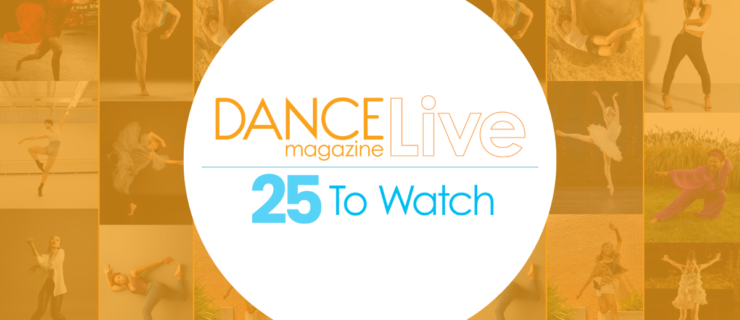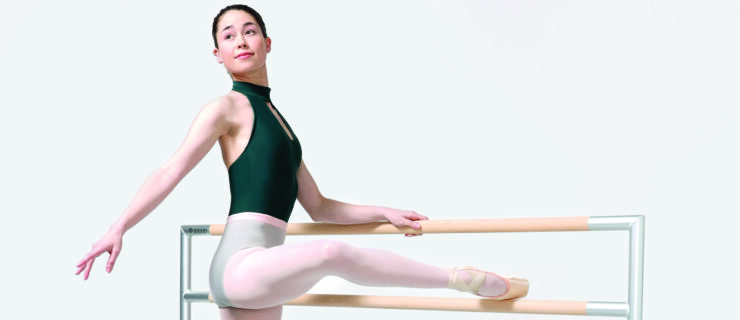The Parent Trap

Would you rather have an over-involved parent like the ones on “Dance Moms,” or a parent who doesn’t acknowledge your love for dance? Finding a happy medium can be tough for both parties, but it’s possible. (Photos by Scott Gries)
Fourteen-year-old Lauren* dreams of dancing professionally and opening her own studio. Unfortunately, Lauren’s dad sees her future differently: “My father supports my dancing as a hobby, but not as a career,” says Lauren, who has been dancing for 10 years and studies ballet, pointe, tap, jazz, modern, contemporary and hip hop. “He’d like me to have a job where I won’t have to worry about how much money is in the bank. Even going to college for dance is completely out of the question for him. I’ve told him dance is the only thing I can picture myself pursuing, but he just doesn’t understand.”
Lauren’s certainly not alone. Maybe your parents don’t see dance as anything more than a hobby. Maybe they’d rather you studied to be a doctor or a lawyer, or maybe they just aren’t interested in the arts.
“Studies show there are repercussions when people in the arts don’t have parental support,” says Dr. Linda Hamilton, a psychologist who works with dancers. “Mainly, there’s a lot of self-doubt. If parents show no interest, they’re basically saying what you care about isn’t important.” That disinterest can feel devastating, but it doesn’t have to end your dance dreams. You can take steps to change your parents’ minds while building a network of people who will provide the encouragement you need.
Accentuate the Positives
You love dance—but sheer enjoyment isn’t the only perk. Emphasize to doubting parents how dance teaches you skills that you can take into any career. “Dance training can improve focus and concentration,” Hamilton says. “You’re developing a good work ethic and an openness to feedback. Dancers are people who want to be their best, and thus dance is a good training ground for any future profession. Plus, it’s healthy!”
Despite these benefits, many parents worry that dance will interfere with academics—which means that even if school isn’t your favorite thing, you need to show your parents you can keep your grades up. “The more you can do well in school and be focused, the more your parents can see the discipline and character you get from participating in the arts,” says L.A.-based dance teacher Kim Hale.
If you’re serious about dancing after high school, discuss with your parents the option of getting a college degree—either with a dance focus or in an academic discipline—while dancing. If your parents see that dancing doesn’t mean being unprepared for the “real world,” they might be more likely to support you now.

Chloe and her mom, Christi, spend time together backstage at a competition on “Dance Moms.” It’s OK if your parents can’t be at each of your performances, but it’s important that they support your passion—without being overbearing.
Educate Your Parents
Your parents might act unsupportive of your dancing simply because they don’t “get” dance. The first thing to consider in this case is that your mom or dad might not even realize that this disinterest hurts you. If you haven’t already, gently remind them how much it means to you to have them attend your performances and competitions. Then, spend some time educating them about what they’ll see.
“There’s so much dance in pop culture now,” Hale says, “and you can show them examples of that and talk about how it relates to what you do.” Find videos of dancers and companies that inspire you and share them with your parents. A little knowledge might be the key to taking them from disinterested to intrigued.
You might also have to show your parents the variety of dance education options and careers out there. “Parents don’t always see dance as something that can take you places,” Hale explains. To prove otherwise, research dance companies and jobs and present them to your parents, stressing the array of opportunities—from travel to grad school to community service—that dance can bring.
Find Support Elsewhere
Unfortunately, some parents won’t change their minds about dance no matter how persuasive your arguments. Hale encountered this challenge in her own life—her parents removed her from dance classes in 8th grade, just as she was becoming serious about her training. “I’d never gotten a lot of support from them,” she says. “But when I started having some problems in school, they took away dance as punishment.” One of Hale’s teachers stepped in, saying Hale was talented enough to be training at a more serious school, but Hale’s mother was adamant: No more dance.
After high school, Hale reentered the dance world—entirely on her own. “I had to fight my way back,” she says. “I applied for scholarship programs and cleaned toilets to get free classes. It was hard, but I knew that dance was what I was supposed to do.” And even though her parents never came around to supporting dance, Hale wasn’t alone: “I found my way to teachers who could encourage me,” she says. “If you’re in that situation, ask for guidance.” Now, as a faculty member at Debbie Allen Dance Academy, Los Angeles County High School for the Arts, EDGE Performing Arts Center and others, Hale strives to be a voice of encouragement in her students’ lives.
Hamilton agrees that having someone to support your artistic life is vital. “You need emotional backup from different areas if your parents aren’t providing it,” she says. “Surround yourself with people—adults and friends—who validate your love for dance.”
Every parent/child relationship is different, and there’s no one-size-fits-all approach
to dealing with an unsupportive parent. Approach the situation with respect for your parents’ point of view. Most likely, they only want the best for you and just don’t understand when dance is what’s best.
“It’s hard to decide whether I should do what will make my father happy, or what will make me happy,” Lauren says. “But dance is how I express myself, and I can’t imagine not doing it. Dance has been and will always be my passion.”




